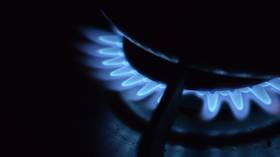Russia explains what it wants from EU in order to increase gas supplies

Russia is prepared to increase gas supplies to Western Europe, but long-term contracts are needed because an increase in production requires a large amount of investment, Moscow's deputy prime minister said on Wednesday.
Speaking to business daily RBK, Aleksander Novak explained that Russia has the resource base to meet the demand of consumers in the European Union, but the bloc refuses to agree to a long-term deal with Moscow, instead wishing to buy on the spot market when demand is raised.
In recent years, the EU has sought to force energy companies to supply gas to the freely traded spot market instead of signing longer deals, often as long as 25 years. Instead of simply increasing supply for surge capacity, Moscow wants to agree to a legally binding agreement with a higher gas capacity over a more extended period of time.
“We are accused of not supplying additional volumes of gas to Europe. Sign long-term contracts, and we will be ready to supply more. This offer always works,” Novak said. “The resource base that Russia has allows it to meet the demand of European consumers in any volume. But, of course, this is not a quick process because the policy that has been pursued in the EU has been aimed at reducing demand. “
The EU’s reluctance to sign long-term contracts and agree to long-term investments are also a contributing factor for the high gas prices, Novak explained, alongside the cold winter weather. This echoes an opinion previously offered by Russian President Vladimir Putin, who said that the switch to trading gas on the stock exchange had caused a rise in costs.
“In fact, this proposal to switch to gas trading on the stock exchange was made and was promoted by the experts of the last convocation of the European Commission, mainly by British experts,” he said. “Of course, consumers in continental Europe are suffering from the implementation of these proposals.”












